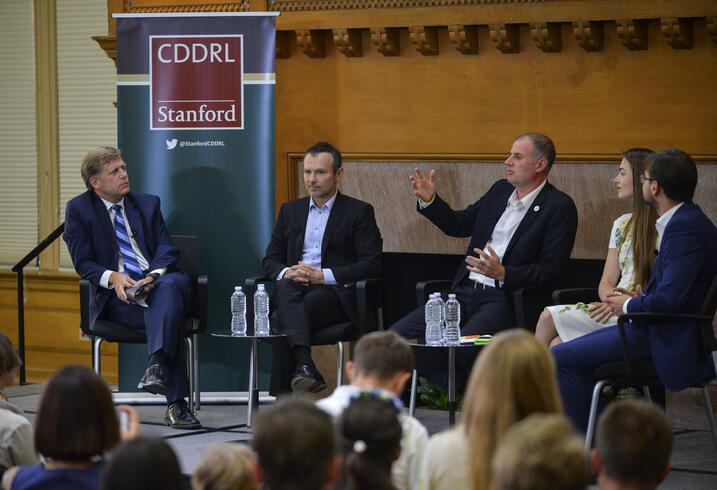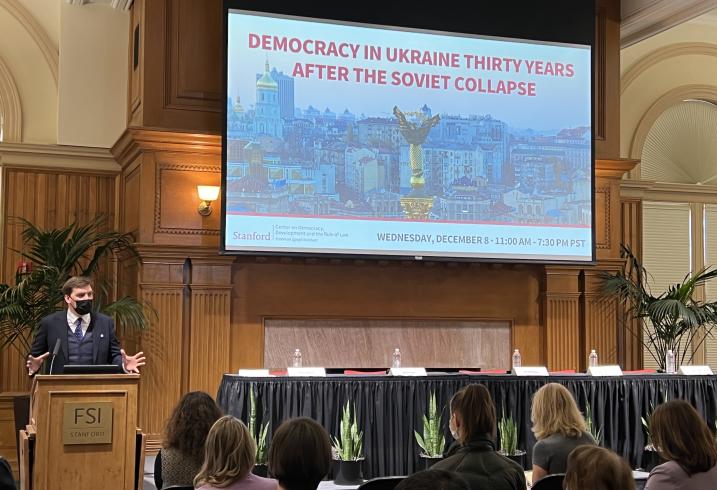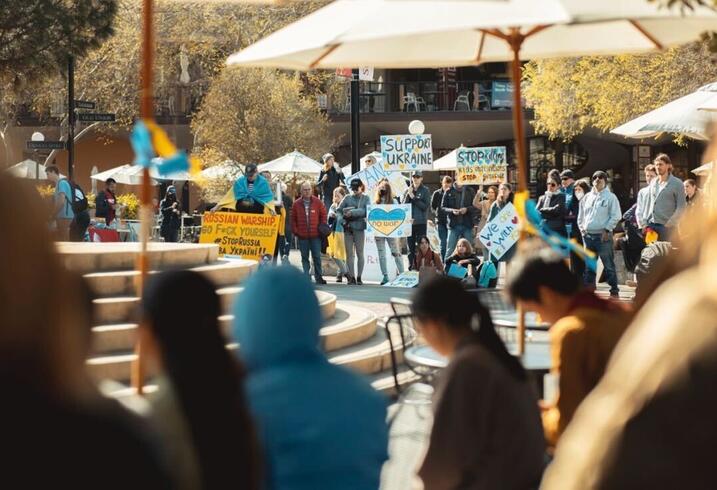Yoon gained popularity as a man of integrity, a prosecutor unrelenting in his efforts to root out corruption and unyielding to political pressures. It was this reputation that propelled him to the presidency. In a pluralized, democratic society, however, there are bound to be repercussions if the highest elected leader decides to simply cut the Gordian knot every time. For example, consider the issue of relocating the presidential office. Yoon and his transition team could arguably have made greater efforts to garner public support and obtain adequate assistance from the current administration, even if they were displeased with the uncooperative attitude of President Moon’s Blue House. Governing the country in the face of powerful resistance from a super-majority opposition party and a dense network of progressive civil society organizations will require deft political leadership. It will be necessary to carefully consider the full range of public opinion, lead political negotiations, mediate and compromise between different views, and exercise restraint in wielding power. Prosecutors are appointed as public servants, but presidents are elected by the people. They each have different roles and responsibilities.
To avoid repeating the errors of its predecessor, the Yoon administration must go beyond emphasizing a principled approach and abiding by the law. The rule of law is necessary for democracy, but it is not sufficient. While building a firm foundation on the rule of law, there must also be a conscientious effort to reflect on and staunchly defend democratic norms, such as tolerance for the other side and forbearance in the exercise of power. Yoon and his administration must resist the temptation to label the opposition as evil and launch yet another campaign to eradicate deep-rooted evils. They must show patience in persuading the opposition party and the people, aiming to pursue commonalities while acknowledging differences. There are already concerns in some quarters that the Yoon administration will create “a republic of prosecutors,” just as the Moon administration formed “a republic of former pro-democracy activists.” If these fears are realized, South Korea’s democracy will regress even further. Yoon’s administration must learn from the failures of the Moon presidency.
It is also critical for Yoon to shed the perception of being anti-feminist as soon as possible. During the campaign, Yoon’s campaign devised a gender-based electoral strategy aimed at earning the votes of young men, promising to abolish the Ministry of Gender Equality and Family in one of its high-profile campaign pledges. This strategy backfired. Yoon lost support among female voters, and it only reinforced his image as an anti-feminist. Although Yoon and his advisors may insist that this image was created entirely by the KDP and the left-wing press, foreign observers would disagree. In its first article following the presidential election, Agence France-Presse labeled President-elect Yoon as “anti-feminist political novice.” Many other foreign news agencies took a similar view in their coverage. Feminism and gender identity are highly sensitive issues on the global stage. If his image as an anti-feminist becomes further solidified, this will impose significant constraints on Yoon’s ability to act as a global leader.
Finally, Yoon must abandon his previous appeals to chauvinistic anti-China sentiment. It was not prudent to appeal to anti-China sentiment following the hanbok controversy at the opening ceremony of the Beijing Winter Olympics[9] or to take the hardline stance of vowing to deploy more THAAD anti-missile batteries if elected. Such remarks are reminiscent of Roh Moo-Hyun’s appeals to anti-U.S. sentiment ahead of the 2002 presidential election. As a result, the Roh administration faced difficulties in managing the relationship with the United States early on in its term. The Yoon administration must resist the temptation to exploit anti-China sentiment for political gain in the same way that the Moon administration used the anti-Japan rhetoric of “traitors in our midst.” The relationship between Seoul and Tokyo reached a nadir during the Moon presidency. Yoon must learn from these mistakes. Even though public opinion is important and Beijing may engage in wrongful actions, his administration must maintain a calm, far-sighted approach in support of South Korea’s national interests. Yoon’s emphasis on pragmatism must also extend to foreign policy and national security issues.
Keeping a Close Eye on South Korea
In 2020, President-elect Biden was faced with the task of healing a fragmented society and bridging political divides. The same is true of President-elect Yoon in South Korea today, but serious conflicts with the Moon administration during the presidential transition have already dashed hopes for a honeymoon period. Previous South Korean presidents typically entered office with around a 70 percent approval rating, but Yoon is failing to reach 50 percent even before he begins his term.
This brings to mind the challenging situation that Biden is currently mired in. He succeeded in preventing Trump’s re-election, but he has struggled in the face of formidable political obstacles and policy challenges. Biden’s approval ratings hover at 40 percent, which is the lowest of any president two years into the term except Trump. Unless the situation improves, the Democratic Party is likely to suffer a defeat in the November midterm elections. There are growing concerns that Biden’s failures could enable Trump to return to the White House for a second term. Meanwhile, the election of Yoon Suk-Yeol has resulted in a transfer of power, but it does not necessarily represent a victory for South Korea’s conservatives. The failure of the Yoon administration could lead to a progressive resurgence. In many ways, Yoon is faced with a task of historic proportions.
This year’s presidential election in South Korea was closely watched by the foreign press. In addition to U.S. news media, I conducted interviews about the election with prominent centrist and progressive media outlets in Europe, including Der Spiegel in Germany, the New Statesman and The Guardian in the UK, and a Swedish public broadcasting channel, all of which published special reports about South Korea’s election. These outlets, which have a powerful influence on shaping public discourse in the West, were keen on understanding how the victory of a prosecutor general–turned-opposition candidate would affect the future of South Korea’s democracy. As the West grapples with its own crisis of democracy, there is heightened interest in whether South Korea—once an exemplar of democracy in East Asia—will be able to repair its democracy.
South Korea’s democracy was being gradually soaked by a light drizzle, which turned into a heavy downpour over the course of the election and the presidential transition. Foreign media outlets and intellectuals will keep a close eye to see whether Yoon Suk-Yeol will be able to save South Korea’s democracy from the impending thunderstorm and undo the damage that has already been inflicted.
This essay is the first in a series of forthcoming monthly commentaries in Sindonga magazine that will be translated into English, so as to reach a wider audience. It is my sincere hope that these essays will contribute to a constructive discussion and debate among intellectuals, both at home and abroad, about the issues that lie ahead for South Korea’s democracy.
[1] Under its current constitution, South Korea has a five-year, one-term presidency. The predecessor of the Democratic Party held power for 10 years under Presidents Kim Dae-Jung (1997–2002) and Roh Moo-Hyun (2002–2007). This was followed by 10 years of conservative rule under Presidents Lee Myung-Bak (2007–12) and Park Geun-Hye (2012–17). Moon Jae-In’s victory in 2017 was thus seen as the beginning of a new era in power for Korea’s progressives.
[2] The use of double standards is often referred to as naeronambul, shorthand for “If I do it, it’s romance, but if you do it, it’s adultery.”
[3] The Board of Audit and Inspection (BAI) has a constitutional mandate to “inspect and examine the settlement of the revenues and expenditures of the State, the accounts of the State and other organizations specified by Act and the job performances of the executive agencies and public officials” (ROK Const., art. 97). The BAI’s inspection panel consists of seven members and makes final decisions regarding the BAI’s investigations.
[7] Both Lee Jae-Myung and Yoon Suk-Yeol lacked prior experience in the National Assembly, which is located in Yeouido. Lee built his political career in local politics as the mayor of Seongnam City and then the governor of Gyeonggi Province, and Yoon had been a lifelong prosecutor before entering politics.
[8] The next legislative elections are due to be held in April 2024.
[9] During the opening ceremony of the 2022 Beijing Winter Olympics, the depiction of a woman in hanbok (Korean traditional dress) as representing one of China’s 56 ethnic minorities angered South Koreans, who believed that China was claiming Korean culture as part of its own on the world stage. This incident was one in a string of cultural conflicts between the two nations amid rising anti-China sentiments in Korea. Yoon, like other then candidates for the presidency, rebuked China for its actions.
































































